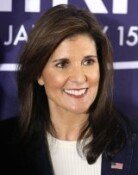American Law Is Key to FTA Game Rule
Dong-A Ilbo has examined the background and influence of American law through field reports and interviews with dozens of domestic and foreign experts. It is time to understand the rule of game before criticizing and objecting to the power of the U.S. with its experienced technique, massive size, and tremendous amounts of money. We should prepare ourselves for the game, as it has already started.
A considerable part of the Korea-U.S. Free Trade Agreement, sealed on April 2, has already been composed. It will be made open to the public after a series of reviews before June 30.
Both the Korean and English versions of agreement will be recognized as the original copy. The agreement is not partial to either side. It is officially an equal agreement for both sides.
The Korean delegation has been advised by three lawyers of U.S. law firm Steptoe & Johnson and four lawyers of Sandler, Travis, & Rosenberg.
In contrast, the U.S. delegation is known not to have received advice about Korean law. This hints upon the true rule of game between both sides that will be in play after the agreement takes effect.
On April 4, the Ministry of Justice announced, We will review the system to make it possible to punish those who transgress intellectual property rights, even without complaints in case the transgression is larger than a commercial scale.
Under the current law, transgressions of intellectual property rights are all offenses subject to complaint. In contrast, there is no such concept in Anglo-American law. This is a representative case of American law accepted as a standard in the game of the Korea-U.S. FTA.
As for the standard of a commercial scale, the Ministry explained, We will set a standard in consideration of our circumstances. Small transgressions will be treated via civil procedure while criminal procedure will only apply to large and important transgressions.
There is more. According to the agreement, the intellectual property right protection will be prolonged from 50 years after the death of those with the right to 70 years. The new system, which will be implemented after a two-year deferment, is an application of the U.S. Sonny Bono Copyright Term Extension Act promulgated in 1998.
The public opinion system in the sector of labor and the citizen participation system in the sector of environment are all cases of readjusting our system and law to American standards.
Trade experts point out that the same game rule applied to both sides means a wide range of integration in law and market. In other words, it is a homogenization in a different scale from opening doors to imports or lifting tariffs in a particular industry. The same procedure will be applied in dealing with investment conflicts.
The back side of the global market integration through free trade agreements is the industrialization of law or even the globalization of the law industry, accompanying American laws reign in the global market. To plunge into the game of the global law industry, called the 4th wave, experts point out, Korea needs to understand the foundation of American law: the principle of mega law firms competition for survival, global companies large judicial affairs systems, and changing U.S. law schools.
verso@donga.com will71@donga.com







